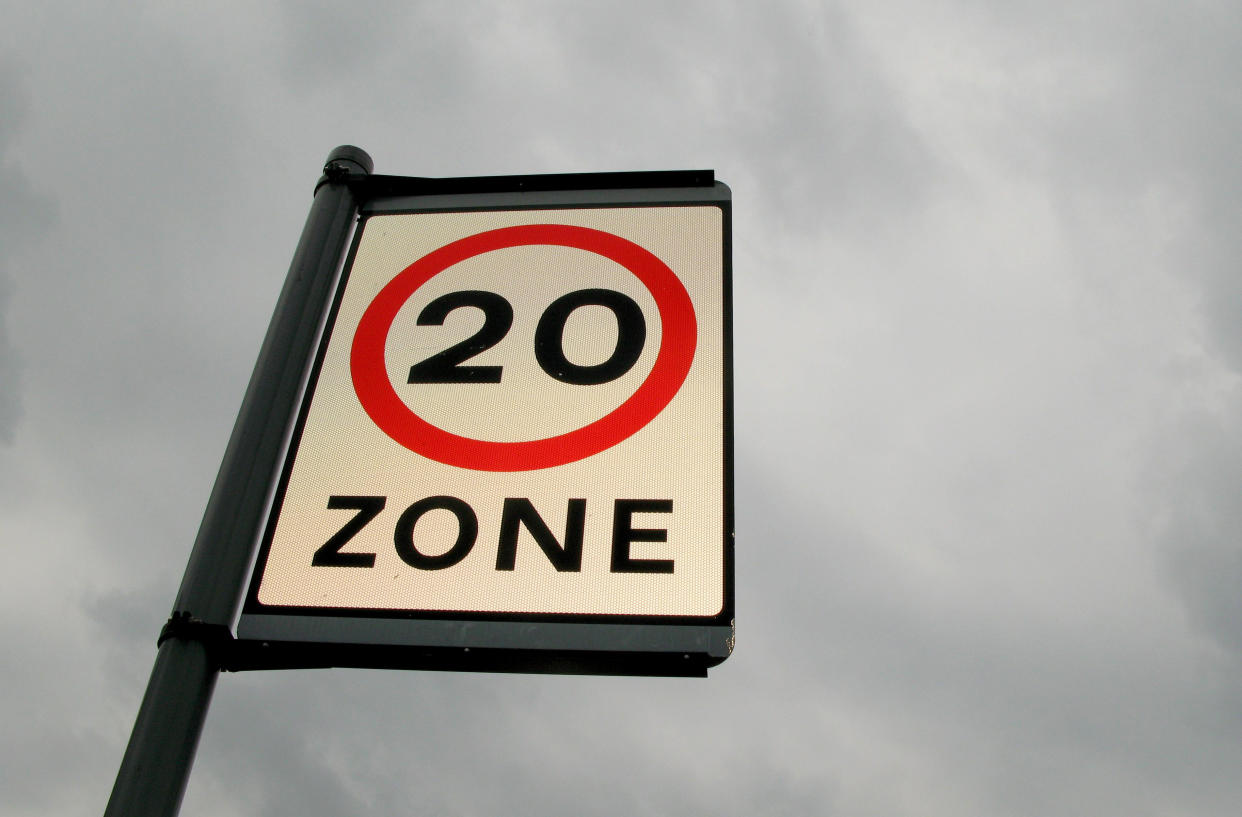20mph speed limits not effective at making people drive more slowly, report finds

An increasing number of 20mph speed limits are doing little to make drivers slow down, new research has revealed.
Commissioned by the Department for Transport, the study found that only half of drivers comply with the restrictions.
The majority are travelling at less than 24mph, however – 70 per cent in residential areas and 86 per cent in city centre areas.
The study also found that many drivers – 44 per cent in residential areas and 59 per cent in city centres – were already travelling at less than 20mph prior to the new limits being introduced.
New 20mph limits are likely to have “formalised” previous behaviour and “a substantial reduction in speed is unlikely in these locations”, the report said.
There were many things found to be associated with poor compliance with 20mph limits, mainly “environments which create a perception of space and openness, and provide the driver with good visibility.”
MORE: Almost half of Leave voters think the government has lied about how many immigrants there are in the UK
MORE: More than 18,000 parking tickets are issued to drivers in the UK every single day
Areas such as these may encourage faster movement as drivers “do not need to slow down to allow vehicles to pass, and perceive there to be less risk of a collision”.
These include open roads with low levels of on-street parking, long sections of straight or slightly curved road and ‘rat runs’, where drivers are keen to maintain their speed in order to reach their destination quickly.
Things that tend to result in high compliance include narrow roads, short, straight roads with few junctions and residential streets in areas with lots of housing, such as estates.

 Yahoo News
Yahoo News 

